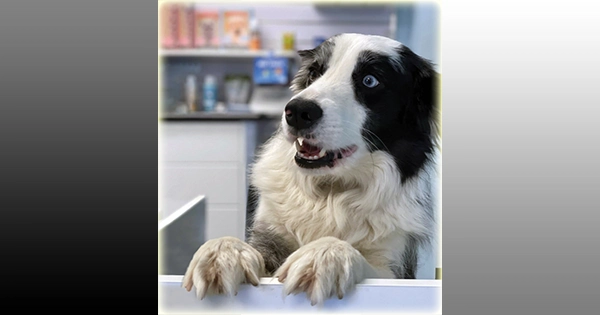When Your New Fur Baby Arrives
By DR BENJAMIN J GRAHAM
You’ve got the new collar ready, your family has been thinking of a name for weeks, and the moment has finally arrived to pick up your new pet!
Fewer things are more exciting than inviting a new fur baby into the family. It’s important to be prepared well before you bring your new pet home.
From diet to exercise, vaccinations and deworming, there is a lot to know, and it can easily be overwhelming.
A visit to the vet can help you get everything sorted in one go.
Tips for your first visit.
Calling ahead to schedule an appointment will avoid long wait times and potential disappointment. With Christmas just around the corner, vets are already feeling the summer rush.
When you arrive, make sure the waiting room is clear of other patients which may upset your new companion or vice versa! Don’t forget to QR check-in and mask up – (pets exempt!).
The nurse will greet you and invite you to weigh in. This is very important today, not just so that we can assess whether your pet is under or overweight, but also so we are prepared to calculate correct dosages of medications if required, and we can track your pet’s growth over the coming months and years.
Once you’re in the consulting room your pet will undergo a clinical examination which involves checking their vital signs, palpating their limbs, abdomen and skin, assessing their teeth, eyes, lymph nodes (among many other things) and of course listening for any heart or lung abnormalities.
Expect to answer questions regarding the age of your pet, your planned diet and your vaccination history. You’ll be advised on nutrition, deworming, flea and tick management, heartworm prevention and future vaccination needs.
Now is the time to ask any questions you may have regarding behaviour, bathing, socialising and healthcare. Make sure you ask all the questions you can think of.

The four-year-old is at the surgery every weekday
Your vet will discuss desexing your pet with you. Dogs and cats are usually recommended for desexing around 5-6 months of age, however, this is breed dependent, and your vet will take a multitude of factors into account when providing their advice.
Your pet will receive their required vaccinations and you will receive a vaccination certificate or pet health record with their next due date. Make sure to note it in your calendar so it’s not missed.
This can also be a good time to make a note of worming and flea/tick/ heartworm prevention due dates. With the offer of a treat, your first visit is done! Navigate safely through reception and ensure your pet is carefully and legally restrained for the trip home.
Puppy preschool is a great way to help dogs learn not only discipline and tricks, but also become socially adept. Unsocialised dogs often default to fear and aggression. With lockdown coming to an end, it will soon be time to take your new pets out and about.
Good luck and don’t hesitate to get in touch with your vet to help you along the way, this is what we live for.
Vet Dr Graham is from BVSC South Windsor www.bvsc.sydney











